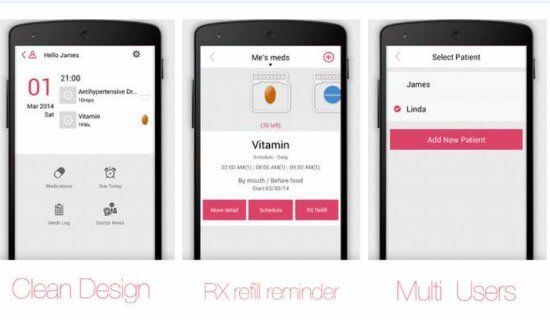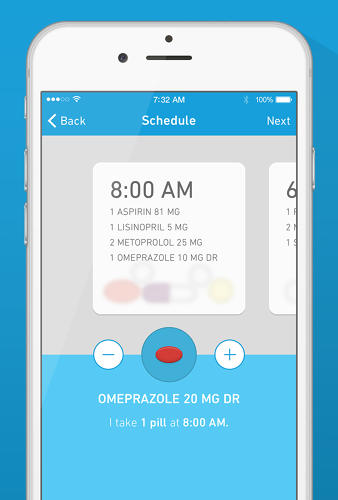

However, these reviews only provided a descriptive analysis of the available apps and their features without a deeper quality assessment. Previous reviews have identified available medication adherence–related apps and described the relevant features present in these apps. These medication adherence apps have many features, including reminders, that may help patients take their medication correctly and avoid medication errors and, hence, could address known barriers to adherence, especially for patients with high pill burden and complex regimens, such as patients with cardiovascular diseases.ĭespite this plethora of medication adherence apps, there is a lack of information on how they differ, how many and which features they have, their overall quality, and whether they are effective. The recent growth in mobile phone subscriptions, however, has spawned an exponential increase in the number of health-related mobile phone apps available in the app stores, including those dedicated to improve medication-taking behavior. Reminders sent via text messages have been shown to improve adherence in chronic diseases. Furthermore, there has been an increasing interest in using mobile phones as a tool to improve medication adherence. In recent years, the growing mobile phone ownership has made mobile phones a promising tool to deliver health care interventions. It is known that current interventions provide inconsistent results in improving adherence. Medication nonadherence is associated with increased risk of morbidity, mortality, and costs therefore, there is a need for effective interventions to improve adherence. Nonadherence to long-term therapies in chronic diseases is a global concern highlighted by the World Health Organization report in 2003. Using the MARS instrument, we were able to identify high-quality apps that were rated as being very interesting and entertaining, highly interactive and customizable, intuitive, and easy to use and to navigate as well as having a high level of visual appeal and good-quality information. The advanced apps had a higher number of features per app compared with the basic apps. We classified 54.8% (149/272) of the included apps as advanced medication reminder apps and 45.2% (123/272) as basic medication reminder apps. The most common features were flexible scheduling that was present in 56.3% (153/272) of the included apps, medication tracking history in 54.8% (149/272), snooze option in 34.9% (95/272), and visual aids in 32.4% (88/272). Overall, the median number of features per app was 3.0 (interquartile range 4.0) and only 18 apps had ≥9 of the 17 desirable features.
BEST PILL REMINDER APP 2015 FOR FREE
Only 109 apps were available for free and 124 were recently updated in 2015 or 2016. Apps found in Google Play had more customer reviews, higher star ratings, and lower cost compared with apps in iTunes.


We identified 272 medication reminder apps, of which 152 were found only in Google Play, 87 only in iTunes, and 33 in both app stores.


 0 kommentar(er)
0 kommentar(er)
